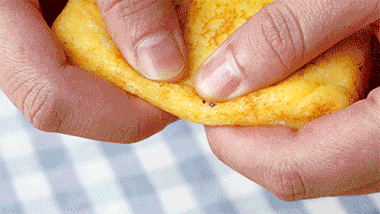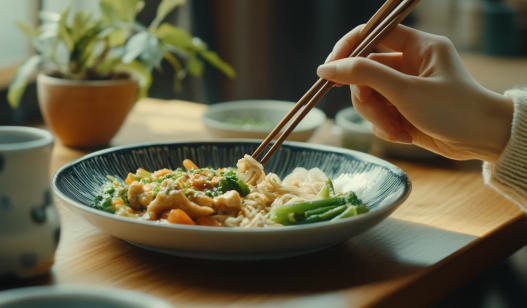Introduction: The Dangers of Early Solid Food
Dear moms, have you ever been confused by the many baby food recommendations online? From beef puree to carrot mash to egg yolk puree, it’s easy to get overwhelmed.
But adding solid food to your baby’s diet isn’t as straightforward as it seems. Some foods, if introduced too early, can actually cause more harm than good.
In this article, we’ll talk about the 3 big mistakes many parents make when introducing solids. These are foods you may be tempted to give your baby early, but doing so can have negative effects. Let’s take a closer look.
1. Introducing Honey Too Early: The Risk of Infant Botulism
“Honey is so nutritious! It’ll make my baby healthy and strong!”
Does this sound familiar? Many parents believe that honey will boost their baby’s immune system and make them feel better. But in reality, honey can be very dangerous for babies under one year.
Honey contains spores of the Clostridium botulinum bacteria. This bacterium can multiply in a baby’s immature digestive system and produce a toxin. This toxin can lead to a serious illness called Infant Botulism.
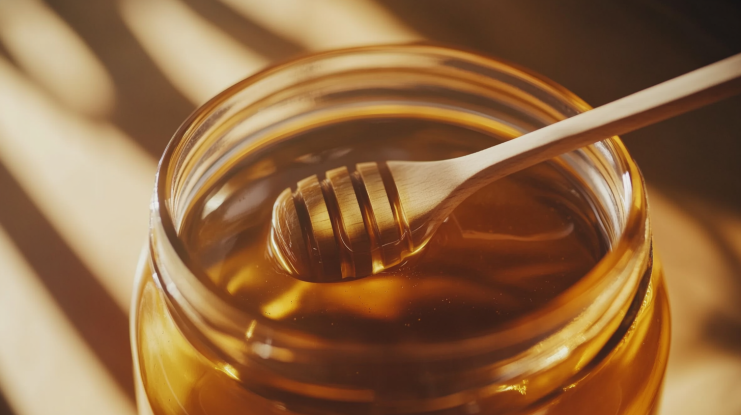
Symptoms of botulism include constipation, muscle weakness, and difficulty breathing. In severe cases, it can even be life-threatening.
Because a baby’s digestive system isn’t fully developed, the botulinum toxin can be absorbed easily. Therefore, honey should never be given to babies under 12 months of age.
Tip: Avoid all foods containing honey, like honey-flavored oatmeal, until your baby turns one year old.
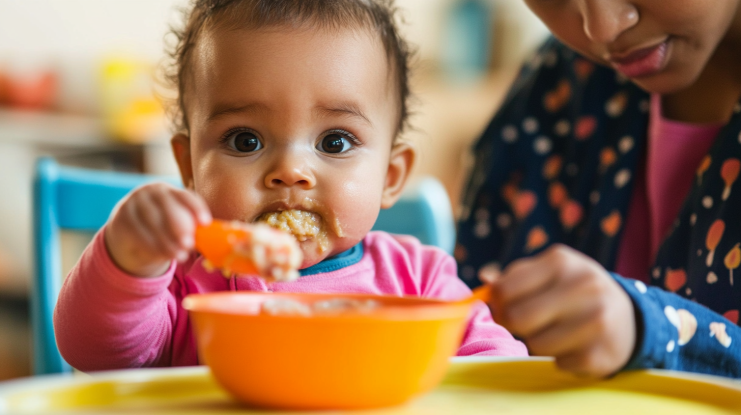
2. Adding Salt Too Soon: Babies’ Kidneys Aren’t Ready
How many parents have been tempted to sprinkle a little salt in their baby’s food, thinking it will make the taste better? Many believe that adding salt to their baby’s meals is harmless, but it can actually cause problems.
Babies’ kidneys are still developing and cannot process excess salt. Giving salt to a baby too early can place unnecessary strain on their kidneys and may even contribute to conditions like high blood pressure.
The World Health Organization (WHO) recommends that babies under six months should not have any added salt. Salt in baby food should only come from natural ingredients like vegetables and fruits.

Introducing salt too early can overwhelm a baby’s kidneys and interfere with their fluid balance. This can lead to issues like swelling, dehydration, or even kidney damage.
Tip: When preparing baby food, stick to natural, unsalted ingredients. Fresh vegetables, grains, and fruits can provide all the nutrients your baby needs without the extra salt.
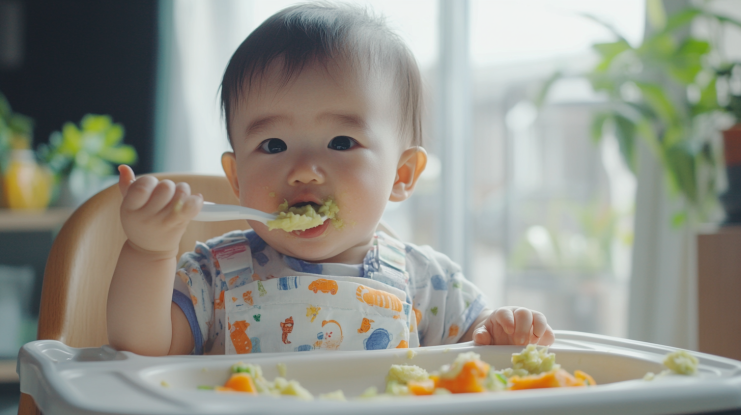
3. Introducing Milk and Eggs Too Soon: The Risk of Allergies
You might think, “Milk and eggs are so nutritious. Surely, they must be good for my baby!” But unfortunately, they are also among the most common allergens.
When babies are exposed to milk and eggs too early, their immune systems are not ready to handle these foods. This can trigger an allergic reaction, which may include symptoms like eczema, difficulty breathing, or even anaphylaxis.
If you introduce milk and eggs before your baby’s immune system has matured, the body may not be able to tolerate the proteins. The reaction can be severe, and in some cases, it can be life-threatening.
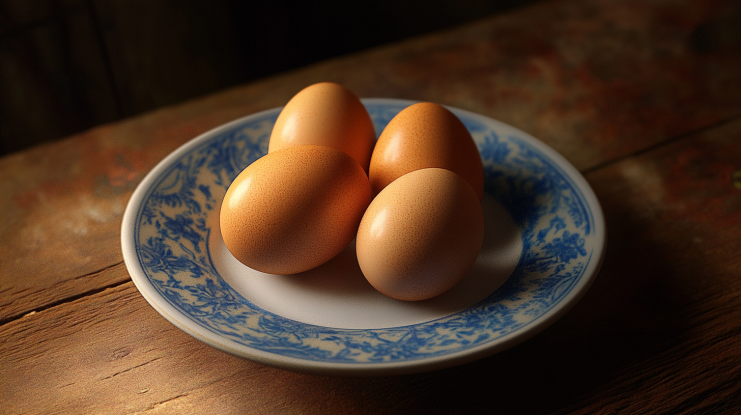
So when is the right time to introduce these foods? Experts suggest waiting until your baby is at least six months old. Start with one food at a time and watch for signs of an allergy.
Tip: Begin with egg yolks, as they’re less likely to cause an allergic reaction. And when you try new foods, wait a few days before introducing another one, so you can monitor your baby for any signs of an allergy.
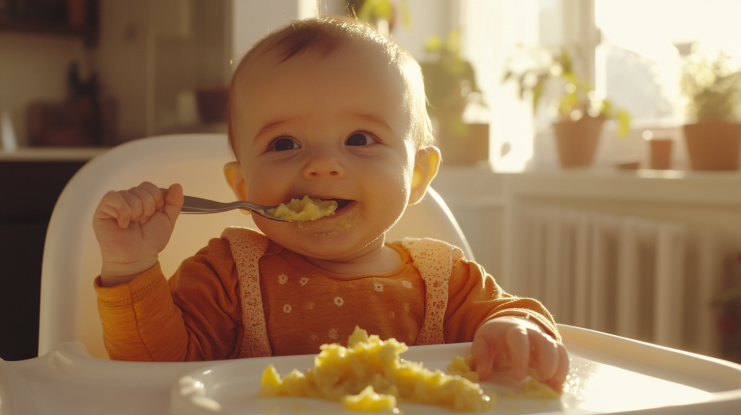
Conclusion: Follow Baby’s Development for Safe Food Choices
When introducing solids, always consider your baby’s growth and development. Avoid foods that can cause harm or pose health risks. The right timing for introducing solids can make a big difference in your baby’s health and growth.
Each baby is different, so make sure to consult with your pediatrician or a nutritionist. They can help you design a personalized baby food plan.






